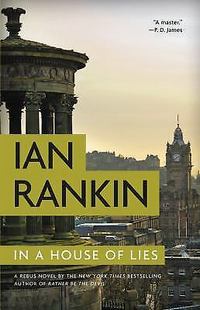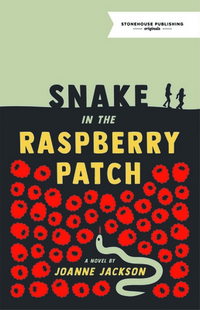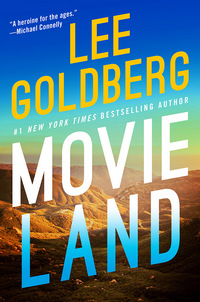 Movieland
Movieland
by Lee Goldberg
DETAILS: Series: Eve Ronin, #4 Publisher: Thomas & Mercer Publication Date: June 20, 2022 Format: Kindle Edition Length: 329 pgs. Read Date: June 21-22, 2022

“It’s hard enough solving a case without the victim working against you.”
“Now you know how I feel.”
Eve walked alongside her sister across the parking lot. “What do you mean?”
“Patients almost never do what we tell them is best for their health and then complain when they just get sicker or their injuries don’t heal. It’s incredibly frustrating.”
“So you’re saying what we do is futile.”
“All it takes is one win, one life saved, and all the other bullshit doesn’t matter.”
What’s Movieland About?
The way that Lee Goldberg describes Malibu Creek State Park in this book makes ti seem like something he created just to have a setting for this book. Exhaustive research (Duck Duck Go +45 seconds) shows me that he didn’t make it up and that he barely scratched the surface of what a great place that must be. Sadly, if Goldberg has Eve Ronin and her partner, Duncan Pavone, at the Park, it can only mean one thing: someone’s been murdered there.
Before Eve got promoted and assigned to Lost Hills station, causing upheaval in Duncan’s life, he’d been trying to tie together a series of cases of shootings (at buildings, cars, that kind of thing) around the Park. He was convinced it they were related, but once he started mentoring Eve through high-profile murder cases, that got put on the back burner. But now, his gut tells him that those shootings and this shooting are related.
The LASD brass doesn’t want to hear it–they want the two focused on the murder and preventing the media storm that’s brewing around it–also, they want this all to come to a quick resolution so the Park can be reopened and people will be willing to use it again.
This is, of course, when things get complicated.
The Victim as a Hurdle
The victim’s girlfriend is an activist blogger well-known in the area for taking on developers, local politicians, celebrities–and the LASD. She was also injured in the attack. She might be the only person who is more skeptical of the Department than Eve. Zena’s convinced that her girlfriend either was killed to silence her or that Zena herself was the intended target and the wrong person was killed.
Zena doesn’t trust the Sherriff’s Department to find the murderer, she assumes they’re not that interested, either. She has her own list of suspects and lashes out at them on the blog she works for, muddying the waters and serving as a distraction to the avenues of investigation that Eve and Duncan want to pursue.
This is a great dynamic to see play out in the book–I don’t remember seeing this a lot in fiction, but seeing the way media attention (however well-intended) makes it hard for the police to do their job properly is a great way to ratchet up the tension.
Is Eve Learning?
“When I start investigating a homicide, I go all-in.”
“You become obsessed.”
“I become focused,” she said.
He shook his head. “You can’t sustain that, physically or emotionally. I keep telling you that. The way you’re going, I’ll outlive you.”
I’ve talked before about Eve’s reckless, pursue-the-case-at-all-costs mentality, and how that’s not sustainable–Duncan’s been on her for quite a while, too. From the way she reacts after this conversation, he might be getting through to her. Then again, action is her default position, so who knows how well it’ll stick.
She also might be paying attention to what he (and others) have been saying about the way she interacts with people, how she plays politics–and tries to apply it.
Basically, Eve’s learning. Goldberg said from the beginning that this was about a rookie detective learning, making mistakes (and we see the blowback from past mistakes here–as well as new ones), and growing into a seasoned detective. Bosch was fully formed when we met him. Ditto for John Rebus, Renee Ballard, Walt Longmire, Jesse Stone, and so on. We really don’t see that many detectives learning their trade. I love this aspect of it.
Frank Belson Redux?
“Is there a way to broach it that won’t offend all of them?”
“Nope, so I’ll handle it,” he said.
“Why you?”
Duncan got out of the car with a groan, clutching his right knee. “Because I’m lovable and retiring and you’re abrasive and sticking around.
I finally put my finger on it while reading this book–Duncan Pavone is Goldberg’s version of Sgt. Frank Belson, from Parker’s Spenser series without the cigar. He’s closer to Ron McLarty’s portrayal in Spenser: For Hire, actually. He’s a slob, getting food on every item of clothing, he doesn’t seem to be incredibly interested in the job, etc. But he doesn’t miss a thing, he’s doggedly stubborn, and will do what it takes to close a case. (he’s also quick to make a caustic and/or cynical comment, and will dole out unsolicited advice like it’s his life purpose).
Knowing that when this book opens that he was 2 weeks away from retirement (which makes him impervious to political pressures, incidentally) cast a shadow over everything in the novel. Eve’s a great character, but I’m really starting to think that Duncan’s the guy to watch in this series.
So, what did I think about Movieland?
“How old so I to be before people stop offering me life lessons?”
“It’s not age, it’s experience.”
“There’s another one,” Eve said, but with a smile, to show there was no bitterness or anger behind the remark.
“It won’t be long, Eve. You’ve crammed more experience into the last few months than most detectives I know have in decades.”
It shouldn’t be this way, but I always end up liking an Eve Ronin book more than I expect to going in–and I’m always champing at the bit for the next one. This is no exception. The Eve Ronin books are one of my favorites in the last couple of years. Movieland is the twistiest, most complex case she’s dealt with, there’s a harder edge to this novel, and fewer reasons to grin or chuckle.
That is not a complaint, it’s a description. Nor does it mean that this is harder to read–Goldberg doesn’t do that–the action moves quickly, his style is deceptively breezy, and the characters pop off the page.
At this point, I’m really invested in these characters and can’t wait to see what’s next for them.
The book also features someone who might be Michael Connelly’s most misguided fan. That was a nice little treat.
Readers of this series probably don’t need the encouragement to read this, but here it is. People who are looking for solid police procedurals with engaging characters and great plots would do well to hop on the Eve Ronin train now (or jump back to book one, Lost Hills).

This post contains an affiliate link. If you purchase from it, I will get a small commission at no additional cost to you. As always, opinions are my own.
![]()



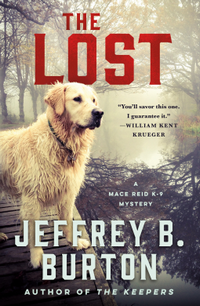

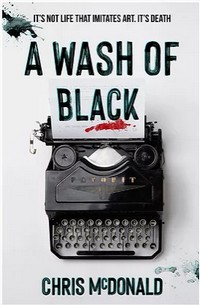

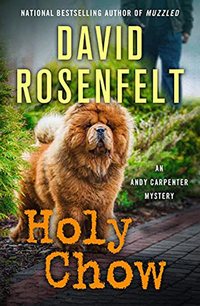
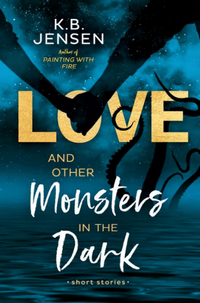
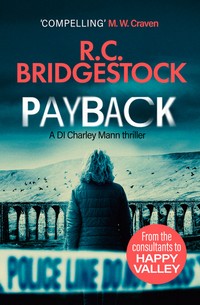


 Grab a book, any book.
Grab a book, any book.